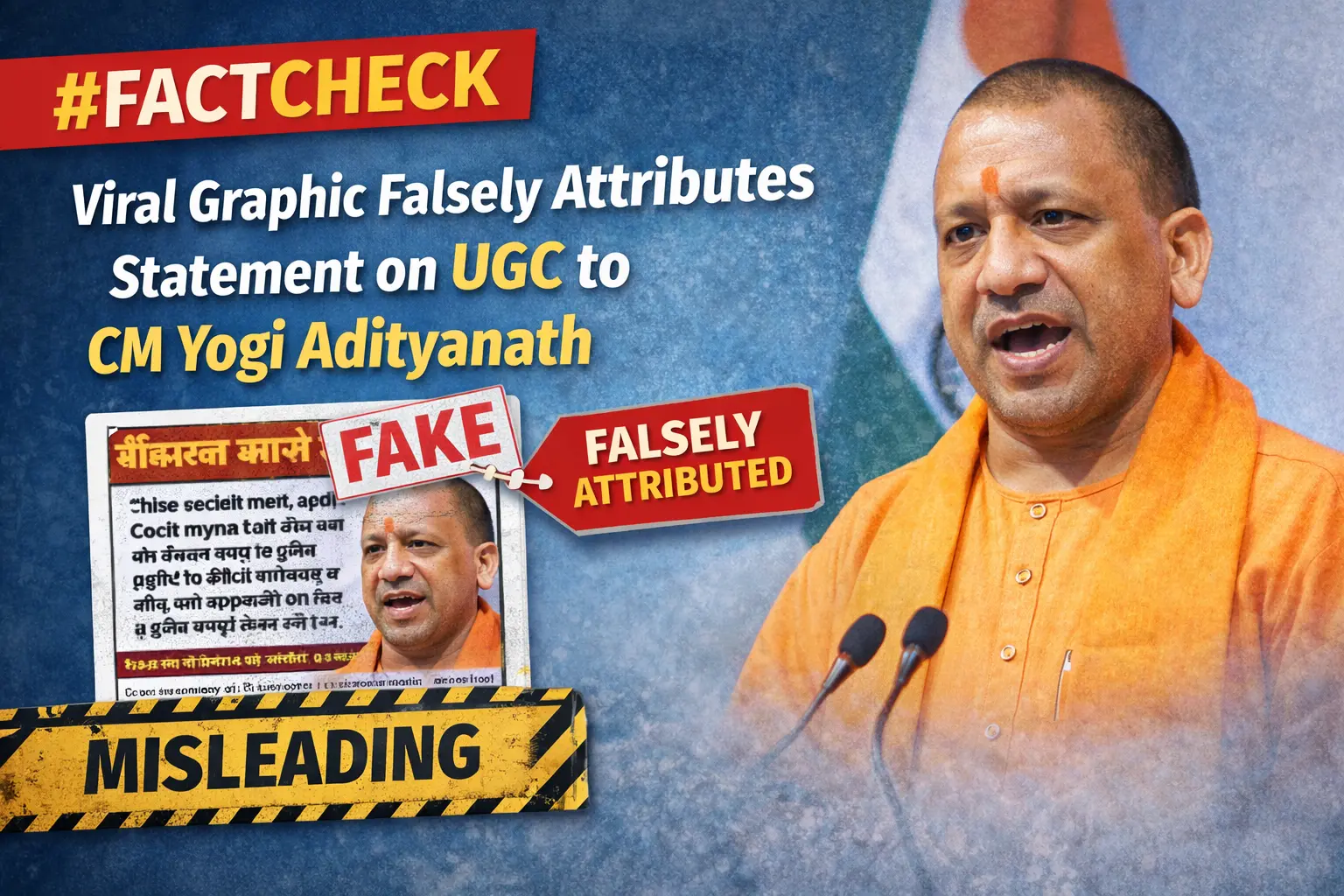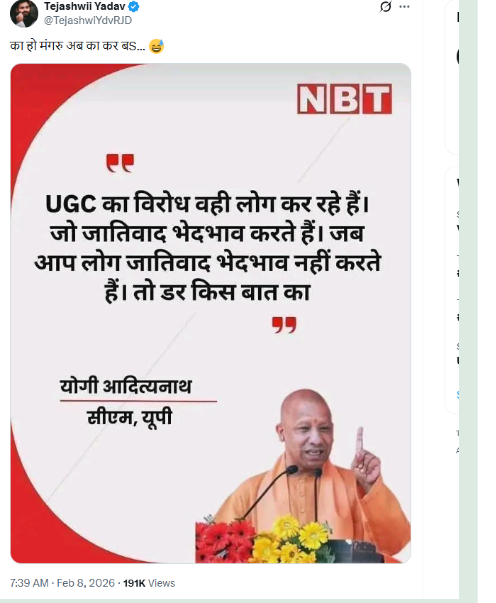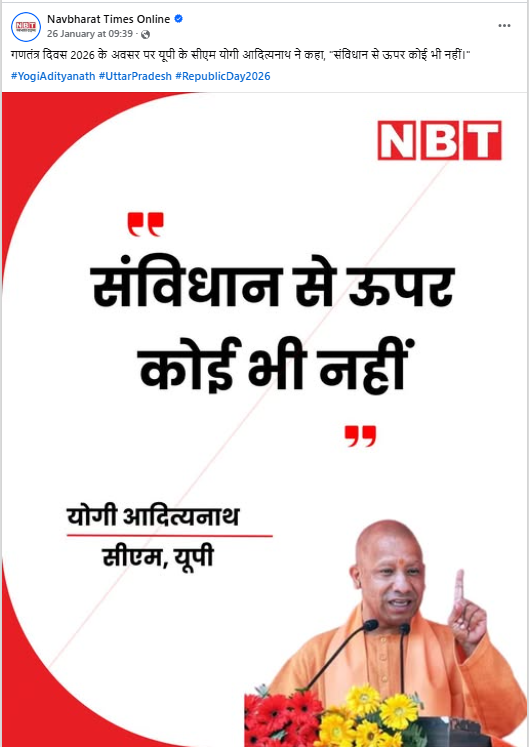#FactCheck - Viral Video Misleadingly Tied to Recent Taiwan Earthquake
Executive Summary:
In the context of the recent earthquake in Taiwan, a video has gone viral and is being spread on social media claiming that the video was taken during the recent earthquake that occurred in Taiwan. However, fact checking reveals it to be an old video. The video is from September 2022, when Taiwan had another earthquake of magnitude 7.2. It is clear that the reversed image search and comparison with old videos has established the fact that the viral video is from the 2022 earthquake and not the recent 2024-event. Several news outlets had covered the 2022 incident, mentioning additional confirmation of the video's origin.

Claims:
There is a news circulating on social media about the earthquake in Taiwan and Japan recently. There is a post on “X” stating that,
“BREAKING NEWS :
Horrific #earthquake of 7.4 magnitude hit #Taiwan and #Japan. There is an alert that #Tsunami might hit them soon”.

Similar Posts:


Fact Check:
We started our investigation by watching the videos thoroughly. We divided the video into frames. Subsequently, we performed reverse search on the images and it took us to an X (formally Twitter) post where a user posted the same viral video on Sept 18, 2022. Worth to notice, the post has the caption-
“#Tsunami warnings issued after Taiwan quake. #Taiwan #Earthquake #TaiwanEarthquake”

The same viral video was posted on several news media in September 2022.

The viral video was also shared on September 18, 2022 on NDTV News channel as shown below.

Conclusion:
To conclude, the viral video that claims to depict the 2024 Taiwan earthquake was from September 2022. In the course of the rigorous inspection of the old proof and the new evidence, it has become clear that the video does not refer to the recent earthquake that took place as stated. Hence, the recent viral video is misleading . It is important to validate the information before sharing it on social media to prevent the spread of misinformation.
Claim: Video circulating on social media captures the recent 2024 earthquake in Taiwan.
Claimed on: X, Facebook, YouTube
Fact Check: Fake & Misleading, the video actually refers to an incident from 2022.
Related Blogs

In a recent ruling, a U.S. federal judge sided with Meta in a copyright lawsuit brought by a group of prominent authors who alleged that their works were illegally used to train Meta’s LLaMA language model. While this seems like a significant legal victory for the tech giant, it may not be so. Rather, this is a good case study for creators in the USA to refine their legal strategies and for policymakers worldwide to act quickly to shape the rules of engagement between AI and intellectual property.
The Case: Meta vs. Authors
In Kadrey v. Meta, the plaintiffs alleged that Meta trained its LLaMA models on pirated copies of their books, violating copyright law. However, U.S. District Judge Vince Chhabria ruled that the authors failed to prove two critical things: that their copyrighted works had been used in a way that harmed their market and that such use was not “transformative.” In fact, the judge ruled that converting text into numerical representations to train an AI was sufficiently transformative under the U.S. fair use doctrine. He also noted that the authors’ failure to demonstrate economic harm undermined their claims. Importantly, he clarified that this ruling does not mean that all AI training data usage is lawful, only that the plaintiffs didn’t make a strong enough case.
Meta even admitted that some data was sourced from pirate sites like LibGen, but the Judge still found that fair use could apply because the usage was transformative and non-exploitative.
A Tenuous Win
Chhabria’s decision emphasised that this is not a blanket endorsement of using copyrighted content in AI training. The judgment leaned heavily on the procedural weakness of the case and not necessarily on the inherent legality of Meta’s practices.
Policy experts are warning that U.S. courts are currently interpreting AI training as fair use in narrow cases, but the rulings may not set the strongest judicial precedent. The application of law could change with clearer evidence of commercial harm or a more direct use of content.
Moreover, the ruling does not address whether authors or publishers should have the right to opt out of AI model training, a concern that is gaining momentum globally.
Implications for India
The case highlights a glaring gap in India’s copyright regime: it is outdated. Since most AI companies are located in the U.S., courts have had the opportunity to examine copyright in the context of AI-generated content. India has yet to start. Recently, news agency ANI filed a case alleging copyright infringement against OpenAI for training on its copyrighted material. However, the case is only at an interim stage. The final outcome of the case will have a significant impact on the legality of these language models being able to use copyrighted material for training.
Considering that India aims to develop “state-of-the-art foundational AI models trained on Indian datasets” under the IndiaAI Mission, the lack of clear legal guidance on what constitutes fair dealing when using copyrighted material for AI training is a significant gap.
Thus, key points of consideration for policymakers include:
- Need for Fair Dealing Clarity: India’s fair-dealing provisions under the Copyright Act, 1957, are narrower than U.S. fair use. The doctrine may have to be reviewed to strike a balance between this law and the requirement of diverse datasets to develop foundational models rooted in Indian contexts. A parallel concern regarding data privacy also arises.
- Push for Opt-Out or Licensing Mechanisms: India should consider whether to introduce a framework that requires companies to license training data or provide an opt-out system for creators, especially given the volume of Indian content being scraped by global AI systems.
- Digital Public Infrastructure for AI: India’s policymakers could take this opportunity to invest in public datasets, especially in regional languages, that are both high quality and legally safe for AI training.
- Protecting Local Creators: India needs to ensure that its authors, filmmakers, educators and journalists are protected from having their work repurposed without compensation, since power asymmetries between Big Tech and local creators can lead to exploitation of the latter.
Conclusion
The ruling in Meta’s favour is just one win for the developer. The real questions about consent, compensation and creative control remain unanswered. Meanwhile, the lesson for India is urgent: it needs AI policies that balance innovation with creator rights and provide legal certainty and ethical safeguards as it accelerates its AI ecosystem. Further, as global tech firms race ahead, India must not remain a passive data source; it must set the terms of its digital future. This will help the country move a step closer to achieving its goal of building sovereign AI capacity and becoming a hub for digital innovation.
References
- https://www.theguardian.com/technology/2025/jun/26/meta-wins-ai-copyright-lawsuit-as-us-judge-rules-against-authors
- https://www.wired.com/story/meta-scores-victory-ai-copyright-case/
- https://www.cnbc.com/2025/06/25/meta-llama-ai-copyright-ruling.html
- https://www.mondaq.com/india/copyright/1348352/what-is-fair-use-of-copyright-doctrine
- https://www.pib.gov.in/PressReleasePage.aspx?PRID=2113095#:~:text=One%20of%20the%20key%20pillars,models%20trained%20on%20Indian%20datasets.
- https://www.ndtvprofit.com/law-and-policy/ani-vs-openai-delhi-high-court-seeks-responses-on-copyright-infringement-charges-against-chatgpt

Executive Summary
A news graphic is being shared on social media claiming that Uttar Pradesh Chief Minister Yogi Adityanath said,“Those who practice casteism and discrimination are the ones opposing UGC. If you do not indulge in caste-based discrimination, what is there to fear?” The CyberPeace’s research found the viral claim circulating on social media to be false. Our research revealed that Chief Minister Yogi Adityanath never made such a statement. It was also established that the viral news graphic has been digitally edited.
Claim
On February 8, a user on social media platform X (formerly Twitter) shared a news graphic bearing the logo of Navbharat Times, attributing the above statement to CM Yogi Adityanath. The post and its archived version can be seen below, along with screenshots. (Links and screenshots provided)

Fact Check:
To verify the authenticity of the claim, we conducted a keyword-based search on Google. However, we did not find any credible or reliable media report supporting the viral statement. We further examined the official social media accounts of Chief Minister Yogi Adityanath, including his Facebook and Instagram handles. Our review found no post, speech, or statement resembling the claim made in the viral graphic.
Continuing the research , we examined the official social media accounts of Navbharat Times. During this process, we found the original graphic published on the Navbharat Times Facebook page on January 26, 2026. The caption of the original graphic read: “On the occasion of Republic Day 2026, Uttar Pradesh Chief Minister Yogi Adityanath said, ‘No one is above the Constitution.’”
This clearly differs from the claim made in the viral graphic, indicating that the latter was altered.

Conclusion
Our research confirms that Uttar Pradesh Chief Minister Yogi Adityanath did not make the statement being attributed to him on social media. The viral news graphic is digitally edited and misleading. The claim, therefore, is false.

Introduction
“GPS Spoofing” though formerly was confined to conflict zones as a consequence, has lately become a growing hazard for pilots and aircraft operators across the world, and several countries have been facing such issues. This definition stems from the US Radio Technical Commission for Aeronautics, which delivers specialized advice for government regulatory authorities. Global Positioning System (GPS) is considered an emergent part of aviation infrastructure as it supersedes traditional radio beams used to direct planes towards the landing. “GPS spoofing” occurs when a double-dealing radio signal overrides a legitimate GPS satellite alert where the receiver gets false location information. In the present times, this is the first time civilian passenger flights have faced such a significant danger, though GPS signal interference of this character has existed for over a decade. According to the Agency France-Presse (AFP), false GPS signals mislead onboard plane procedures and problematise the job of airline pilots that are surging around conflict areas. GPS spoofing may also be the outcome of military electronic warfare systems that have been deployed in zones combating regional tension. GPS spoofing can further lead to significant upheavals in commercial aviation, which include arrivals and departures of passengers apart from safety.
Spoofing might likewise involve one country’s military sending false GPS signals to an enemy plane or drone to impede its capability to operate, which has a collateral impact on airliners operating at a near distance. Collateral impairment in commercial aircraft can occur as confrontations escalate and militaries send faulty GPS signals to attempt to thwart drones and other aircraft. It could, therefore, lead to a global crisis, leading to the loss of civilian aircraft in an area already at a high-risk zone close to an operational battle area. Furthermore, GPS jamming is different from GPS Spoofing. While jamming is when the GPS signals are jammed or obstructed, spoofing is very distinct and way more threatening.
Global Reporting
An International Civil Aviation Organization (ICAO) assessment released in 2019 indicated that there were 65 spoofing incidents across the Middle East in the preceding two years, according to the C4ADS report. At the beginning of 2018, Euro control received more than 800 reports of Global Navigation Satellite System (GNSS) interference in Europe. Also, GPS spoofing in Eastern Europe and the Middle East has resulted in up to 80nm divergence from the flight route and aircraft impacted have had to depend on radar vectors from Air Traffic Control (ATC). According to Forbes, flight data intelligence website OPSGROUP, constituted of 8,000 members including pilots and controllers, has been reporting spoofing incidents since September 2023. Similarly, over 20 airlines and corporate jets flying over Iran diverted from their planned path after they were directed off the pathway by misleading GPS signals transmitted from the ground, subjugating the navigation systems of the aircraft.
In this context, vicious hackers, however at large, have lately realized how to override the critical Inertial Reference Systems (IRS) of an airplane, which is the essential element of technology and is known by the manufacturers as the “brains” of an aircraft. However, the current IRS is not prepared to counter this kind of attack. IRS uses accelerometers, gyroscopes and electronics to deliver accurate attitude, speed, and navigation data so that a plane can decide how it is moving through the airspace. GPS spoofing occurrences make the IRS ineffective, and in numerous cases, all navigation power is lost.
Red Flag from Agencies
The European Union Aviation Safety Agency (EASA) and the International Air Transport Association (IATA) correspondingly hosted a workshop on incidents where people have spoofed and obstructed satellite navigation systems and inferred that these direct a considerable challenge to security. IATA and EASA have further taken measures to communicate information about GPS tampering so that crew and pilots can make sure to determine when it is transpiring. The EASA had further pre-cautioned about an upsurge in reports of GPS spoofing and jamming happenings in the Baltic Sea area, around the Black Sea, and regions near Russia and Finland in 2022 and 2023. According to industry officials, empowering the latest technologies for civil aircraft can take several years, and while GPS spoofing incidents have been increasing, there is no time to dawdle. Experts have noted critical navigation failures on airplanes, as there have been several recent reports of alarming cyber attacks that have changed planes' in-flight GPS. As per experts, GPS spoofing could affect commercial airlines and cause further disarray. Due to this, there are possibilities that pilots can divert from the flight route, further flying into a no-fly zone or any unauthorized zone, putting them at risk.
According to OpsGroup, a global group of pilots and technicians first brought awareness and warning to the following issue when the Federal Aviation Administration (FAA) issued a forewarning on the security of flight risk to civil aviation operations over the spate of attacks. In addition, as per the civil aviation regulator Directorate General of Civil Aviation (DGCA), a forewarning circular on spoofing threats to planes' GPS signals when flying over parts of the Middle East was issued. DGCA advisory further notes the aviation industry is scuffling with uncertainties considering the contemporary dangers and information of GNSS jamming and spoofing.
Conclusion
As the aviation industry continues to grapple with GPS spoofing problems, it is entirely unprepared to combat this, although the industry should consider discovering attainable technologies to prevent them. As International conflicts become convoluted, technological solutions are unrestricted and can be pricey, intricate and not always efficacious depending on what sort of spoofing is used.
As GPS interference attacks become more complex, specialized resolutions should be invariably contemporized. Improving education and training (to increase awareness among pilots, air traffic controllers and other aviation experts), receiver technology (Creating and enforcing more state-of-the-art GPS receiver technology), ameliorating monitoring and reporting (Installing robust monitoring systems), cooperation (collaboration among stakeholders like government bodies, aviation organisations etc.), data/information sharing, regulatory measures (regulations and guidelines by regulatory and government bodies) can help in averting GPS spoofing.
References
- https://economictimes.indiatimes.com/industry/transportation/airlines-/-aviation/false-gps-signal-surge-makes-life-hard-for-pilots/articleshow/108363076.cms?from=mdr
- https://nypost.com/2023/11/20/lifestyle/hackers-are-taking-over-planes-gps-experts-are-lost-on-how-to-fix-it/
- https://www.timesnownews.com/india/planes-losing-gps-signal-over-middle-east-dgca-flags-spoofing-threat-article-105475388
- https://www.firstpost.com/world/gps-spoofing-deceptive-gps-lead-over-20-planes-astray-in-iran-13190902.html
- https://www.forbes.com/sites/erictegler/2024/01/31/gps-spoofing-is-now-affecting-airplanes-in-parts-of-europe/?sh=48fbe725c550
- https://www.insurancejournal.com/news/international/2024/01/30/758635.htm
- https://airwaysmag.com/gps-spoofing-commercial-aviation/
- https://www.wsj.com/articles/aviation-industry-to-tackle-gps-security-concerns-c11a917f
- https://www.deccanherald.com/world/explained-what-is-gps-spoofing-that-has-misguided-around-20-planes-near-iran-iraq-border-and-how-dangerous-is-this-2708342


